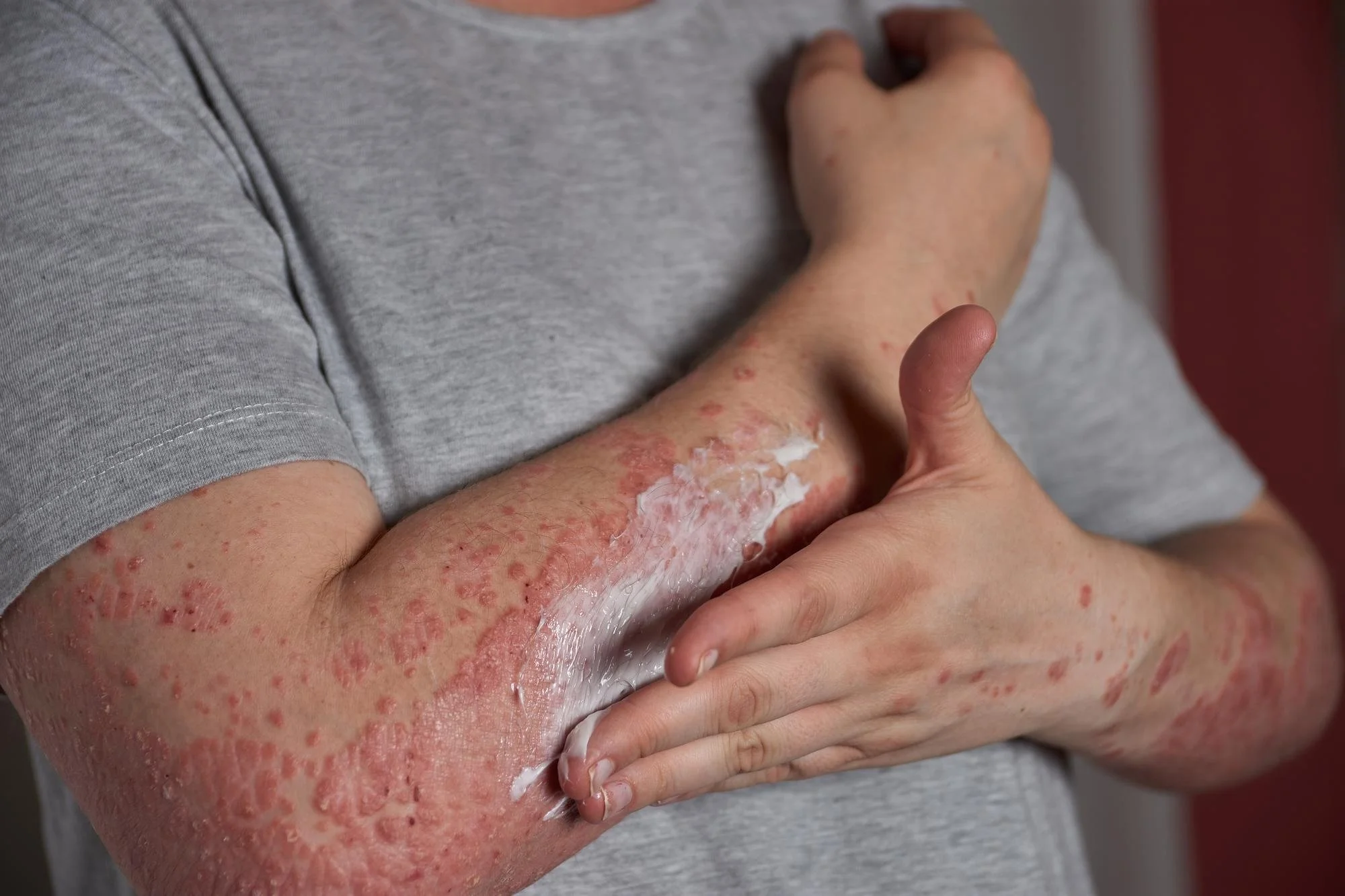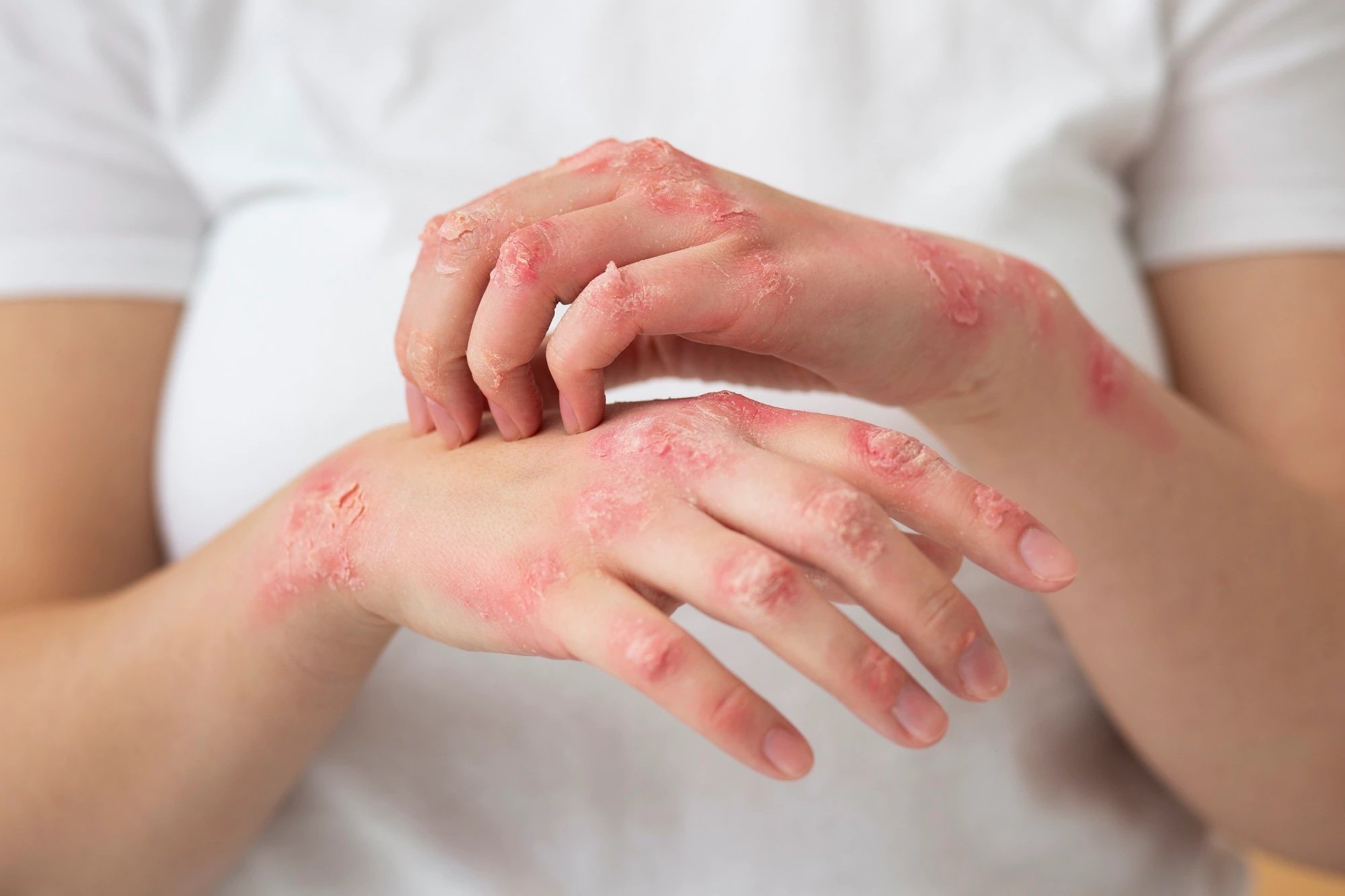Psoriasis - Frequently Asked Questions
Psoriasis is a chronic skin condition characterized by thick, scaly patches of skin that can be itchy and sometimes painful. These patches, called plaques of psoriasis, can appear on any part of the body, but they are most commonly found on the scalp, knees, and elbows. While each individual's case is unique, learn more about psoriasis with these Frequently Asked Questions. During your visit at Danesh Dermatology, we are happy to discuss your condition and what steps can be taken to help manage it.
Q: What causes Psoriasis?
A: The exact cause of psoriasis is not known, but it is thought to be an autoimmune disease. It is believed that certain triggers, such as stress, infection, injury to the skin, and certain medications, can cause the immune system to mistakenly attack the skin cells, leading to the development of psoriasis.
Q: How do you treat Psoriasis?
A: There are several treatment options available for psoriasis, including topical medications, light therapy, and oral or injectable medications. The treatment plan will depend on the severity of the condition and the individual's personal preference. Some people may benefit from a combination of treatments.
Q: Who is likely to get Psoriasis?
A: Psoriasis can affect people of all ages, but it is most commonly diagnosed in people between the ages of 20 and 30. It is also more common in people with a family history of the condition.
Q: Is Psoriasis permanent?
A: Psoriasis is a chronic condition, which means that it can last for long periods of time and may come and go. It can be managed with proper treatment and sometimes may disappear permanently.
Q: What is the difference between Psoriasis and Eczema?
A: Psoriasis and eczema are both chronic skin conditions, but they have distinct characteristics and causes. While psoriasis is characterized by thick, scaly patches of skin that can sometimes be itchy and painful, eczema is typically characterized by dry, itchy, and inflamed skin. The likely causes are also unique – psoriasis is believed to be an autoimmune disease, while eczema is thought to be caused by a combination of genetic and environmental factors.
Q: Is Psoriasis caused by allergies?
A: Allergies are not believed to be a direct cause of psoriasis. While certain triggers, such as stress, infection, injury to the skin, and certain medications, can cause flare-ups of the condition, allergies are not considered to be one of these triggers. However, some people with psoriasis may also have other conditions such as eczema or hay fever (allergic rhinitis) which could be caused by allergies
Q: Is it bad to wash my hands too much if I have Psoriasis?
A: Frequent hand washing can dry and irritate the skin, which can worsen psoriasis symptoms. It is important to be mindful of how much you wash your hands, and to use a gentle, fragrance-free soap. After washing your hands, it's important to apply a moisturizer to keep your skin hydrated.
Q: How do I know if I have Psoriasis?
A: The best way to know if you have psoriasis is to visit a dermatologist, who can provide you with a proper diagnosis. At Danesh Dermatology, we will examine your skin, scalp, and nails, as well as ask about your symptoms and medical history to understand the context of your condition. It is important to note that psoriasis can sometimes be mistaken for other skin conditions, such as eczema or seborrheic dermatitis, so it is important to visit a dermatologist to receive an accurate diagnosis.
While psoriasis is a chronic condition and there is no cure, it can be managed with proper treatment and care. If you suspect you have psoriasis, you can contact our offices in Beverly Hills or San Gabriel so that we can help you develop the proper treatment plan.
This post is not medical advice. To discuss your individual case, please contact our office. Images are of models and courtesy of Freepik. Learn more about the different conditions we treat on our services page.


